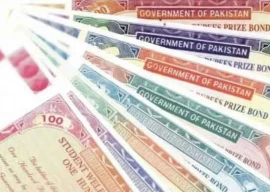
Pressure is building on the government and its finance team to provide relief to the unemployed and the poor in the upcoming budget, despite strict austerity measures mandated by the International Monetary Fund (IMF).
Finance Ministry sources said that politicians have been pressing the economic managers to announce a scheme to offer low-interest loans of up to Rs 500,000 to unemployed youth and those in low-income groups. An announcement in this regard is expected in the budget speech of Finance Minister Dr Abdul Hafeez Shaikh scheduled for June 3.
The suggestion is to extend loans at an interest rate ranging between 10 and 12 per cent against market rates of between 18 and 22 per cent, they added. A similar Rozgar scheme was also announced during the reign of General Pervez Musharraf.
The government might use the network of microfinance outlets and the National Bank of Pakistan for the disbursement of the loans. The Finance Minister may also announce an expansion of the outreach of microfinance credit in the budget.
The economic managers are finding it difficult to make place in the budget for such schemes, as they have virtually no fiscal space after following the IMF order to restrict the budget deficit to four per cent of the total size of the economy. However, politicians are in favour of some providing relief as there are chances the next year might be an election year.
Purchasing power in the country has significantly reduced due to double-digit inflation in the last three years while high interest rates also discouraging new investment. As a relief measure, the government may change the mandate of the Pakistan Poverty Alleviation Fund (PPAF) by authorising it to expand beyond micro financing. Presently, the PPAF has over Rs25 billion in surplus funds that could be utilised for relief measures.
As another relief measure, the government could exempt life line consumers of electricity and gas from an expected further increase in the price of utilities.
The finance minister may also announce lower regulatory duties on the import of raw material, bringing them down to between five and ten per cent, said sources in the Federal Board of Revenue.
There may also be an increase in the salaries of employees up to the grade-16 level.
The other proposal being considered is to increase the threshold of income tax exemption from Rs300,000 to Rs350,000.
Published in The Express Tribune, June 2nd, 2011.









1732486769-0/image-(8)1732486769-0-270x192.webp)







COMMENTS (3)
Comments are moderated and generally will be posted if they are on-topic and not abusive.
For more information, please see our Comments FAQ